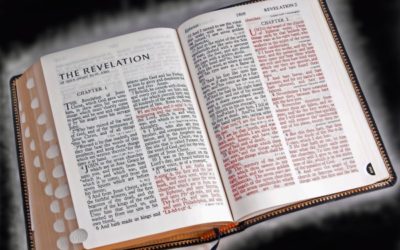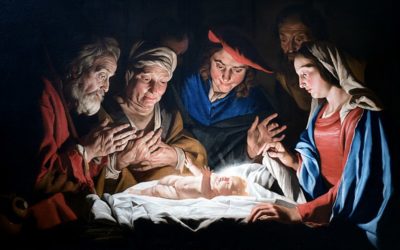October 1831 was a busy month for Joseph Smith and other Church leaders. The summer trip to Missouri had been good, but problems had piled up in Ohio while they were gone. Now they faced a busy fall catching up. Three revelations received in September and October 1831 helped stabilize the Church during this time.
Doctrine and Covenants 64
In Isaiah 55:8‒9, the Lord declared, “For my thoughts are not your thoughts, neither are your ways my ways, saith the Lord. For as the heavens are higher than the earth, so are my ways higher than your ways, and my thoughts than your thoughts.”
Sometimes when the Lord makes promises, we imagine how they will be fulfilled. When things don’t turn out the way we imagine, we may be disappointed, even disillusioned.
The fault is ours, not the Lord’s. We’ve focused on fulfilling our imaginations when we should instead be seeking to submit our wills to the Father’s, as Jesus did throughout his life (3 Nephi 11:11).
Joseph Smith found that many in the Church, including some prominent leaders, had imagined how things would be in Missouri or Ohio, and when they didn’t turn out that way, they murmured. Much of the revelation that is now Doctrine and Covenants 64 shows the Lord correcting those whose imaginations had taken them in the wrong direction.
For who was complaining and what they were complaining about, please click here. Understanding these details will help you understand specific verses in the section.
Even though the revelation was directed at people long dead, it is still relevant. Today, we hear a lot of people criticizing Joseph Smith and his successor prophets, as though they are all supposed to be perfect. When the Savior commanded “be ye therefore perfect” in the Sermon on the Mount, He used a term that in the original Greek of the New Testament means “finished or complete” but has been translated as “perfect” in the King James Version of the Bible.
Even Jesus wasn’t “perfect” in this sense until the end of His earthly ministry. In His great intercessory prayer at the Last Supper, Jesus reported to the Father, “I have finished the work which thou gavest me to do,” and after excruciatingly working out the Atonement in Gethsemane and on the cross, His last words in mortality were “It is finished” (John 19:30).
Jesus could work out the atonement because He was the only person ever to live on this earth who was “without sin” (Hebrews 4:15). Other than Him, “all have sinned, and come short of the glory of God” (Romans 3:23), and that includes prophets. It is our job as Church members not to take on the responsibility for correcting them but to leave that to the Lord.
Of Joseph Smith, the Lord said, “There are those who have sought occasion against him without cause.” Yes, the Lord acknowledged, Joseph “has sinned; but verily I say unto you, I, the Lord, forgive sins unto those who confess their sins before me and ask forgiveness, who have not sinned unto death.” (Doctrine and Covenants 64:6‒7.)
Like parents telling their other children, “We’ll deal with your brother and what he did wrong; it’s not your job,” the Lord seems to be telling us, “Yes, even prophets sin. But they’re accountable to Me, and I’ll take care of them.”
On the day the Church was organized, the Lord commanded His Saints to accept His word through His prophet “in all patience and faith” (Doctrine and Covenants 21:1). That is our duty.
Doctrine and Covenants 65
On October 30, 1831, Joseph Smith received a revelation related to a passage in the Lord’s prayer, “Thy kingdom come” (Matthew 6:10). The Saints anticipated the Second Coming, and the revelation, in the voice of the Lord Himself, undoubtedly had great interest.
For more on the history of the section, click here.
The Lord commanded the Saints to prepare the way for Him (verses 1 and 3) and explained that “the keys of the kingdom of God” had been “committed unto man on the earth, and from thence shall the gospel roll forth unto the ends of the earth, as the stone which is cut out of the mountain without hands shall roll forth, until it has filled the whole earth” (verse 2).
The Saints were commanded to pray to the Lord, do missionary work, and prepare the people of the earth for the Second Coming (verses 4‒5).
“Wherefore,” the revelation concluded, “may the kingdom of God”—that is, the Church—”go forth, that the kingdom of heaven may come, that thou, O God, mayest be glorified in heaven so on earth, that thine enemies may be subdued; for thine is the honor, power and glory, forever and ever. Amen.” (Verse 6.)
Doctrine and Covenants 66
The day before the revelation that is now section 65 was received, Joseph received another revelation, this one in response to a prayer of William E. McLellin, an early Church member who would later become a member of the Quorum of the Twelve before apostatizing. William had prayed for the Lord to reveal through Joseph five questions, probably about William’s standing before God. Joseph received this revelation, which answered the five questions without Joseph knowing what they were, something that deeply moved William.
For more on the history of this section, click here.
In the revelation, the Lord promised to bless William to the extent he “turned away from” his iniquities and accepted the truths of the gospel (verse 1), a promise extended to all people (verse 2).
The Lord told William he had partly repented of his sins but still did things “which are not pleasing in my sight” (verse 3) and therefore still had some repenting to do.
Once William had fully repented, he was to serve a mission, preaching the gospel “in those regions round about where it has not been proclaimed” (verses 4‒5).
Like many of the early Saints, William was tempted to hang around the Prophet or go to Zion. The Lord told him not to do that but to start on his mission, not worrying about his property (verse 6).
The Lord then gave him specific instructions about where to go on his mission (“the eastern lands”), who his missionary companion should be (Joseph’s brother Samuel), and how long he should serve (until the Lord called him back). (Verses 7‒9.)
Some of the Lord’s instructions to him were pointed and probably related to the questions in his secret prayer: “Be patient in affliction” (verse 9). “Seek not to be encumbered” (verse 10). And especially, “Commit not cadultery—a temptation with which thou hast been troubled” (verse 10).
If William did as commanded, the Lord promised he would “push many people to Zion with songs of everlasting joy upon their heads” (verse 11) and in the end “have a crown of eternal life at the right hand of my Father” (verse 12).
Photo credit for image at top of page: Stock image from depositphotos.com.



